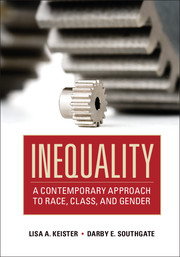1 - Social Stratification and Opportunities
from I - Basic Concepts
Published online by Cambridge University Press: 05 June 2012
Summary
At the end of a day, Bill and Melinda Gates return to their estate on the shore of Lake Washington near Seattle. They might relax around their indoor/outdoor swimming pool, enjoy a game of tennis or basketball on one of their several athletic courts, or watch a movie in their personal state-of-the-art theater. Their three children can entertain themselves in the trampoline room, which has a 20-foot ceiling, or they might read a book in the family’s extensive library. When it is time for dinner, several cooks assist in preparing the meal in one of six kitchens. Other members of the 300-person staff will clean up after dinner, help bathe the children in one of the 24 bathrooms, and put them to bed in one of 7 bedrooms. The Gates’s main house comprises 66,000 square feet, making it 33 times the size of the average American house (i.e., about 2,000 square feet). In fact, the Gates’s guest room alone is 1,900 square feet and the main reception hall is 2,300 square feet. All of this luxury is not cheap: The house cost more than $97 million to build and the Gates pay approximately $1 million in property taxes on the structure each year. Maintenance costs for salaries and repairs are higher than the total budget of many small American cities.
Across town near downtown Seattle, Brian and Laura Willis have a very different experience when they return home at the end of a day. They live with their three children in a two-bedroom apartment, where the plumbing usually – but not always – works. Because their apartment is in a city-owned low-rent complex, they are seldom a high priority for the landlord’s maintenance staff; plumbing repairs and other maintenance issues can take days. Other children live in the complex, but the Willis children typically are not allowed to play outside of their apartment because it is not uncommon for drug dealers to be in the hallways and prostitutes on the street. Brian and Laura try to entertain their children in the evening with games and books. However, almost half of their monthly income goes to pay the rent for their 880-square-foot apartment. After buying groceries, paying utility bills, and occasional visits to a health clinic (health insurance is too expensive), little money remains for clothes, toiletries, furnishings, and other necessities. Toys, games, cable television, family trips to restaurants or the movies, and other forms of entertainment are a rare luxury for the Willis family.
- Type
- Chapter
- Information
- InequalityA Contemporary Approach to Race, Class, and Gender, pp. 3 - 40Publisher: Cambridge University PressPrint publication year: 2012



